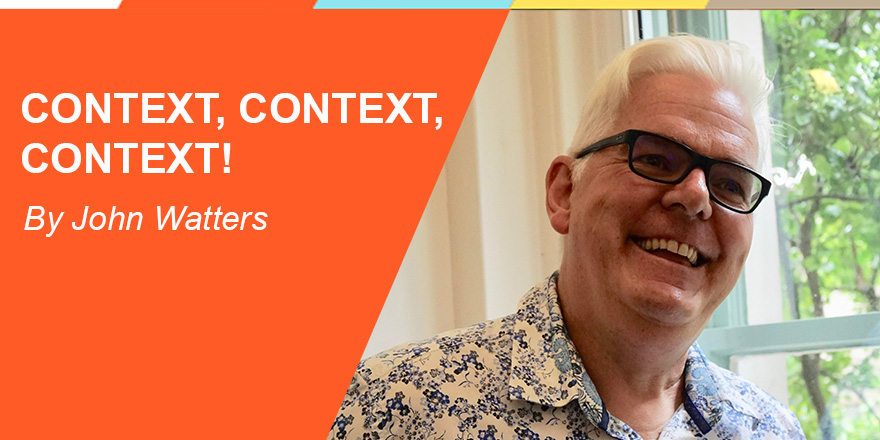

It began as a straightforward review call as we prepared for a workshop, and then the tone changed. My client began to describe, with some exasperation and angst, the pressure on the group she’s working with and how it seemed to be paralysing them. She talked about the pace, the stress, their lack of bold ideas, poor communication… a complex spaghetti that seemed to be getting more tangled, and her fear that the workshop might make the situation worse. “How can we give people more confidence? How do we make this process more human?”
She was naming symptoms of a problem and her aspiration for how things could be different, but she couldn’t see how to close the gap between them and relax the tension she was feeling.
I asked if she’d like to go one step further and craft a ‘miracle question’, to leave behind the territory of the problem and set a new frame as a focus for her energy and actions. I asked her to close her eyes and imagine we were about to do something truly miraculous, something that would bring to life everything she wanted to see happen. I played back some of her words and helped her bring them to life in her imagination.
I then asked her to craft a simple question – “How can I…?” or “How could…?” – that could hold all she was imagining. “A question’s just occurred to me.” We wrote it down, played with it, noticed the words that seemed important and those that produced a reaction. She hit on a beautiful question that moved us both. We paused, sat with it. “I feel peaceful,” she said.
We shifted gear, moving back into the practical questions relating to the workshop, with a clearer sense of the objective and different language to describe it. She left the call with a proposal for her business sponsor, and with more confidence and conviction.
A ‘miracle question’ is a provocation, an invitation to leap beyond the confines of the problem. It’s useful when someone is caught in a problem, struggling to work out what intervention is needed, or has a sense that the ‘real’ issue lies elsewhere. These are all clues we’re faced with something systemic and need to free ourselves from the constraints of linear thinking.
A ‘miracle question’ often names the underlying ‘truth’ of a situation, the deeper, less obvious thing that emerges when we give space to our intuition and insight.
I notice people tend to go still and relax when we start to formulate a question; agitation slows and stops. If you give space to the pauses, you can see the insights emerge, like bubbles rising.
There are more tender stories, too. It seems like such a simple act, the crafting of a question, but it’s
sensitive. It can be hard for people to name a dream, as if by saying it out loud they might vanish the possibility.
Last week, a coaching client saw a story about herself that’s different from the well-thumbed version she carries with her. She saw strength, resourcefulness and determination, the freedom to leap into the future without fear. She went quiet, cried a little. And then the old story asserted itself, “I couldn’t really be like that.”
But she can, and she will, because she is already – and she can’t ‘un-know’ that new story or ‘un-have’ the experience of it. The question isn’t all that’s needed, but it’s a step on the path.
The miracle isn’t the creation of something new but a shift in our sense of what’s possible. It shows us the possibilities we’ve been blind to and the ways in which our stories can limit us (even as they have served and resourced us).
“It’s such a breakthrough, seeing myself in such a positive light.”
Lycia helps people think and act systemically based on the science of how complex systems work and evolve. Click here to get in touch.
Future Considerations Ltd
29 Adonis Street, Acropolis
Subdivision, Libis,
Quezon City,
Philippines 1110
Jon’s early career designing applications led to him becoming IT director for a market-leading multinational. His systemic perspective, allied with a background in psychology and subsequent leadership experience inside major organisations was followed by intensive learning in personal development, values systems and multiple intelligences. Brought together, these create a transformational perspective for understanding and developing organisations as living systems. Jon is a master trainer in Spiral Dynamics, a founder director of the UK chapter of Conscious Capitalism and a certified Spiritual Intelligence coach. He is the author of several books and articles and is developer of Relational Being, a visionary whole systems approach to evidence-based spirituality, complexity science, human emergence, societal change and conscious business. This breadth of experience and deep understanding informs his work as a consultant, coach, trainer and facilitator.